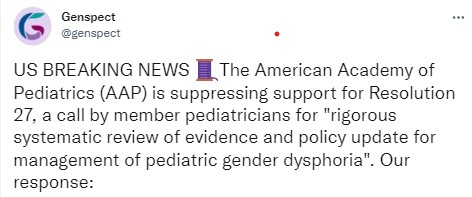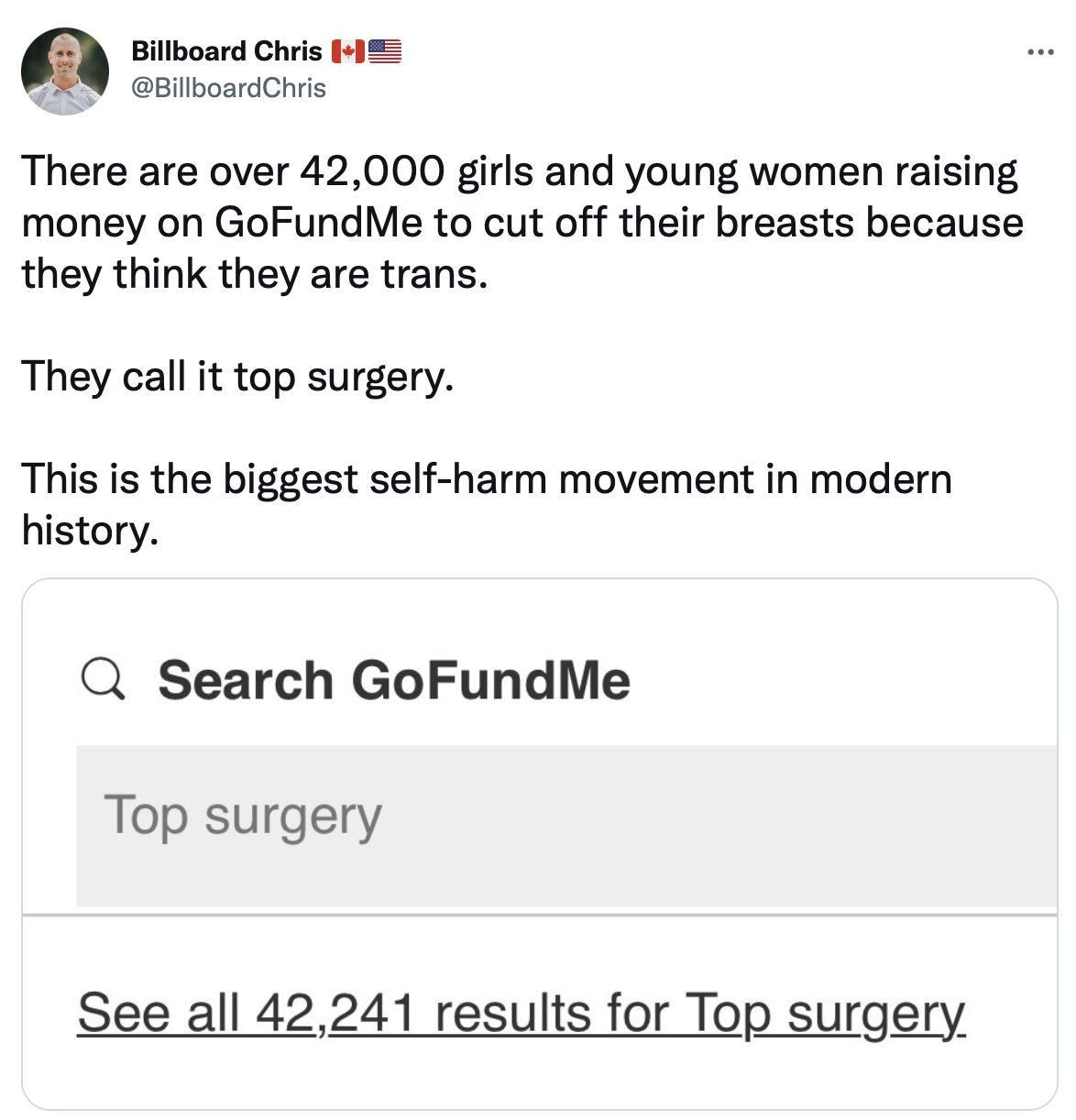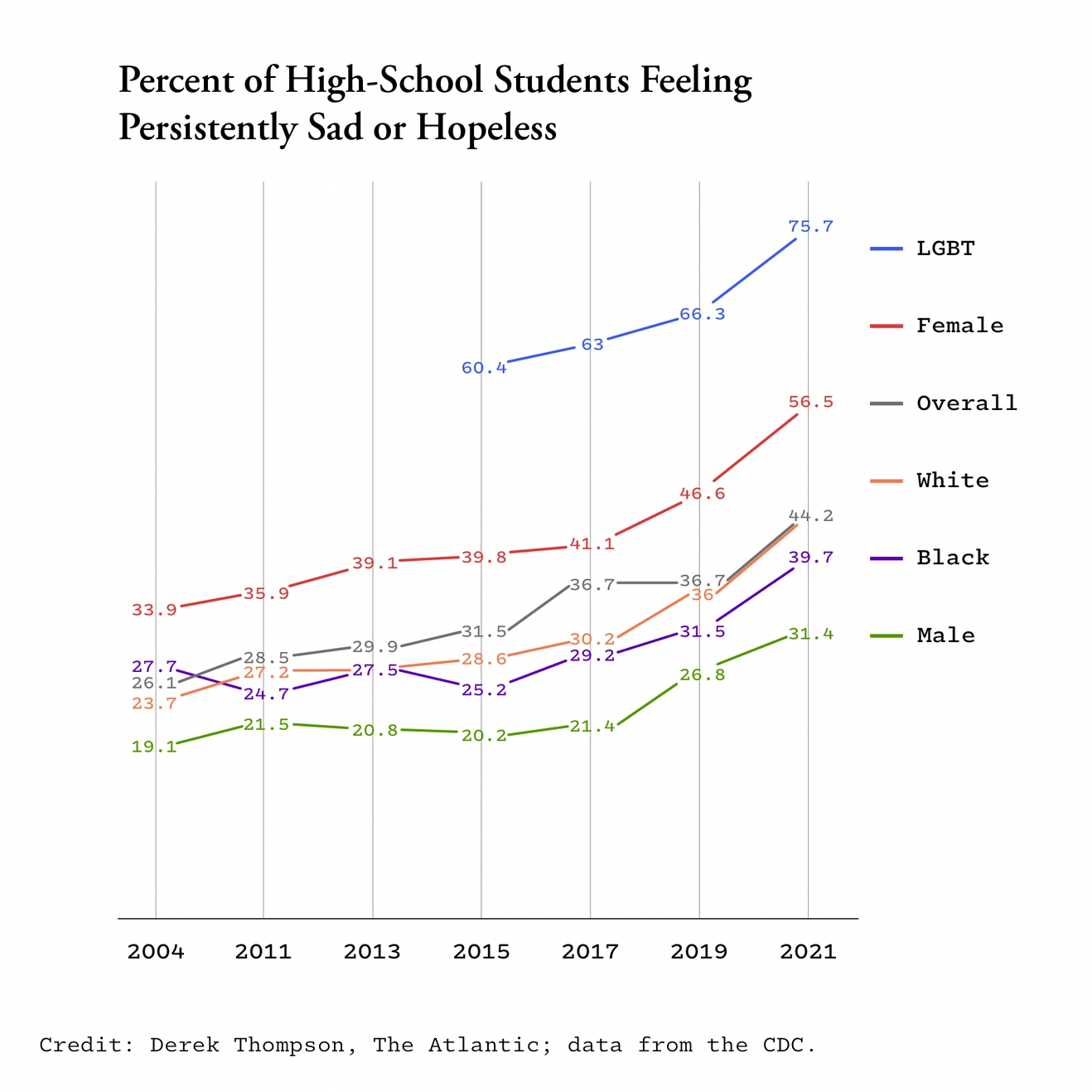Pediatrician Organization Seeks to Shut Down Transgender Conversation
I recently wrote about one of the biggest red flags of all: Those who seek to shut down conversation on important topics. Now this news regarding efforts by the American Academy of Pediatrics (AAP) to shut down conversation regarding the proper treatment for those seeking advice and treatment for transgender issues.
[US BREAKING NEWS: The American Academy of Pediatrics (AAP) is suppressing support for Resolution 27, a call by member pediatricians for "rigorous systematic review of evidence and policy update for management of pediatric gender dysphoria". Our response].
Here is an excerpt from Genspect's open letter to AAP:
Having a combative teenager who urgently insists on something or makes risky choices is not a new development for any parent of an adolescent. What is new is that professionals to whom we have entrusted our kids, rather than safeguarding them from harm and helping heal parental-child rifts so common in teen years, are encouraging our kids to act on their risky, impulsive decisions with irreversible consequences.



